Text
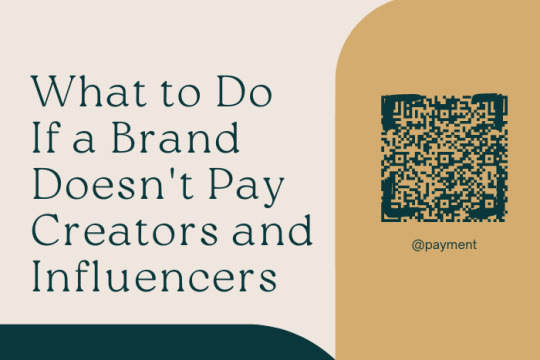
Dealing with a brand that doesn’t pay can be a frustrating and challenging experience for creators and influencers.
Late payments, fee reductions, and even outright refusal to pay as per the agreed terms can significantly impact the livelihoods of content creators and social media influencers.
Empower yourself with insights on 'What to Do If a Brand Doesn't Pay Creators and Influencers'
#influencermarketing#creatorseconomy#digitalamarketing#creators#influencers#brands#contentcreators#influencer#digital marketing#influencer marketing#advertising#creatoreconomy#brand#advertisinglaw
0 notes
Text
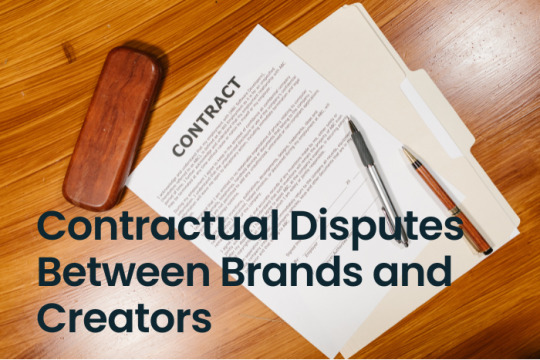
Learn how to resolve disputes between brand creators
Collaborations between brands and creators have emerged as a powerful force in digital marketing.
These partnerships, spanning sponsored content, influencer engagements, and co-branded initiatives, offer a wealth of opportunities for mutual benefit.
Despite the promise of fruitful collaboration, disputes and challenges may arise, especially over contractual obligations.
Brands and creators must understand why contractual disputes occur to be able to navigate them successfully.
#influencermarketing#creatoreconomy#collabration#creators#influencers#brands#influencer#digital marketing#influencer marketing#advertising#brand#advertisinglaw
0 notes
Text
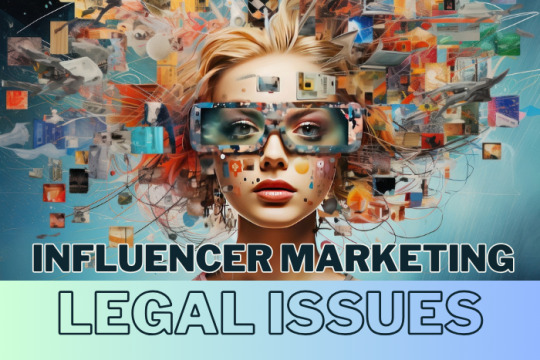
Creators and influencers must have an understanding of influencer marketing legal issues to navigate the digital landscape effectively.
This involves transparent disclosure of sponsored content to comply with regulations and maintain credibility, adherence to #endorsement guidelines to ensure truthfulness in promotions, and respect for copyright and intellectual property laws to prevent infringement.
Managing contracts with brands, understanding tax implications, and protecting intellectual property in content creation are also essential to minimizing legal risks and building positive relationships with audiences.
Here is complete info on Influencer Marketing Legal Issues - https://lawfluencers.com/influencer-marketing-legal-issues/
#advertising#advertisingandmarketing#advertisinglaw#influencermarketing#digitalamarketing#socialmediamarketing#Creators and#influencers#influencer#marketing#disclosure#sponsored#content#regulations#promotions#collabrations#brands#contracts#intellectualproperty#creatoreconomy#contentmarketing#digital marketing#influencer marketing#creators#brand
0 notes
Text

Is Comparative Advertising Legal in India?
In the cutthroat world of #marketing, businesses are always looking for innovative ways to stand out from the competition.
One tactic that has gained popularity over the years is #comparative #advertising, particularly on #socialmedia platforms in India.
Navigate complexities, safeguard your brand, and captivate your audience ethically.
#digitalamarketing#influencermarketing#creatoreconomy#Brands#advertisingandmarketing#advertisinglaw#creators#influencers
0 notes
Text
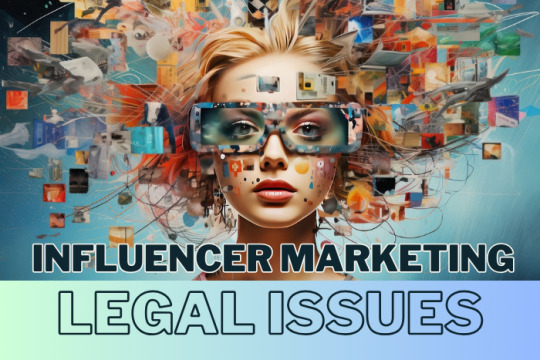
Influencer Marketing Legal Issues and Solutions!
Explore influencer marketing legal issues with actionable solutions and a comprehensive legal guide for influencers and brands. Don’t let legal hurdles hinder your influencer journey.
From disclosures to copyrights, master the legal landscape of influencer marketing.
#influencers#creators#influencer marketing#contentcreator#digital marketing#influencermarketing#contentmarketing#brand#advertising#creatoreconomy#advertisinglaw#digitalmarketing#socialmediamarketing#influencer
0 notes
Text
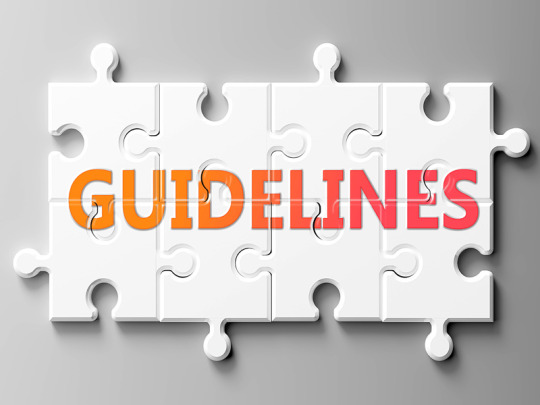
The Central Government will issue new guidelines for social media influencers in the coming days. Failure to disclose paid promotions by influencers and creators can result in very hefty fines ranging from Rs 10 lakh to Rs 50 lakh.
After tightening its grip on misleading & surrogate ads and celebrities who endorse them, the Central Government has now announced that it would soon release guidelines for creators and social media influencers as well.
The government will soon announce a framework of regulations that target people paid to endorse. The guidelines are aimed at preventing misleading advertisements and fake reviews.
#advertising#influencer#creators#digital marketing#influencer marketing#content creator#content marketing#creator economy#social media marketing#brandprotection#influencers#advertisement#marketing#social media lawyers#influencermarketing#lawfluencer#lawfluencers
0 notes
Text
What are the #rules for #UAE #social #media #influencers?
Any #influencer or #creator, promoting a product or service through online social media channels and receiving a fee or in-kind benefits for doing so, should hold a #license from the National Media Council (#NMC) before #publishing any #promotional #content. Nationals of the UAE, locals, and foreigners must abide by the #laws and #regulations. The content and #advertisement on social media must meet the applicable #advertising #standards and #guidelines issued by the NMC.
Read it here: https://lnkd.in/dhaVh3fR

#creators#influencer#digital marketing#influencer marketing#content creator#content marketing#creator economy#social media marketing#brandprotection#influencers#influencer lawyer#influencers law firm#marketing#dubai social media influencers#uae social media influencers license
0 notes
Text
Twin Tower Demolition: A Lesson for Social Media Influencers
The demolition of Supertech's Twin Towers in Noida is a lesson not only for the Real Estate Industry but also for Creators and Influencers who violate social media laws and regulations.
The demolition of the twin towers is symbolic of New India which is all about protecting consumers’ interests and following laws & regulations.
Supertech’s Twin Towers in Noida believed to be the tallest buildings in India were demolished on Sunday 28 August 2022, following the Supreme Court of India's ruling. #Supertech has lost almost 900 crore rupees due to the demolition of the Twin Towers. According to the Supreme Court, the twin towers violated several laws and building regulations.
Most #socialmedia#influencers and #brands are adhering to guidelines laid down by Central Consumer Protection Authority (CCPA), a regulatory authority set up under Section 10 of the Consumer Protection Act, 2019, and the Advertising Standards Council of India (#ASCI) which is a voluntary self-regulatory organization of the advertising industry in India.
Laws and regulations surrounding #Influencer#Marketing are being reformed globally to make it a transparent and responsible #business segment of the advertising industry.
Social media influencers should take cautionary notes and ensure that their social media ads are free of ambiguity and follow social media #laws and regulations. Before signing influencer marketing #contracts and #agreements with the brand, #content#creators and influencers must do due diligence about the #endorsement they make. Social media influencers are also responsible for being a part of a brand's misleading #advertisements and can’t get away.
Regulatory authorities such as the Central Consumer Protection Authority (#CCPA) and ASCI are empowered to act against No-Compliant social media influencers and brands to protect #consumers’ interests.
In the coming days, regulatory authorities have a huge role to play to enforce the guidelines to enhance #transparency, protect consumer’s rights and prevent #wrongdoing of brands and influencers.
The biggest #lesson for #social#media influencers from the demolition of the twin towers is that you can reach any height but if you do not follow the laws and regulations of the land, you are bound to come down!
#Remember, it takes years to build a structure, but a few minutes are enough to turn it into #rubble.
Follow Lawfluencers | Influencer Marketing to read more insightful articles.
Website: https://lnkd.in/dC8KZXwU
Video Credit: https://lnkd.in/dSnDxSZ9
#twintowers#twintowerdemolition#socialmediainfluencers#supremecourt#noida#influencermarketing#content#advertising#laws#creatoreconomy#creators#creator#consumerinsights#brandpartnerships#brandprotection#influencer
1 note
·
View note
Text
No one can #Trademark the word #Fuck - TTAB
The Trademark Trial and Appeal Board (#TTAB) in the United States determined that an applicant cannot have the exclusive #rights to everybody's favorite curse #word. The U.S. authority on trademarks ruled that the word fuck belongs to everybody.
In Iancu v. Brunetti, the #US#Patent & Trademark Office refused to register the trademark FUCK, because federal trademark law prohibited registration of "immoral or scandalous" marks.
#law#trademarks#ipr#iprlaw#intellectualproperty#trademarklaw#brandprotection#brand#trademarkregistration#trademarklawyer#digital marketing#creators#influencer#influencer marketing#social media marketing#creator economy
1 note
·
View note
Text
AiMCO releases new guides for influencers and brands for marketing advertising requirements
The #Australian Influencer Marketing Council (AiMCO) has published two guidelines documents outlining influencer marketing advertising requirements related to responsible alcohol advertising, in response to concerns received from regulators.
Regulatory bodies, including the Therapeutic Goods Administration (TGA), have issued guidance and warned creators and brands to ensure social media content complies with the legal framework.
The AiMCO guide:
- addresses the TGA Advertising Code with regard to influencer marketing;
- explains the difference between an endorsement and a testimonial (the latter unacceptable);
- guides influencers and creators on important content considerations regarding the TGA Advertising Code; and
- provides content scenarios to help clarify an endorsement versus a testimonial.
#AiMCO is the foremost Australian industry body that brings together the expertise of a diverse collective of industry professionals, marketers and content creators who are committed to elevating influencer marketing best practice, campaign measurement and industry knowledge.
Read: https://lnkd.in/dfyitJBF
[1] Therapeutic Goods Administration TGA - https://www.tga.gov.au/
[2] The Alcohol Beverages Advertising Code Scheme ABAC - https://www.abac.org.au/
#influencermarketing#socialmedia#advertising#content#legal#creatoreconomy#creators#influencer#influencers#brands#contentmarketing#ContentCompliance#contentcreators#australia#digitalamarketing
0 notes
Text
Why do Influencers need Professional Legal help?
With the current trend of online trolling, boycotts, and cancel culture, it becomes crucial for influencers to understand their legal rights and accountability when it comes to the transactional aspects of content creation and brand promotion.
Influence also brings notoriety, liability, and loss of privacy along with wealth, responsibility, and popularity. Influencers risk being sued by consumers for promoting products found to be defective or harmful.
The contracts between creators and brands are becoming more and more complex with the surge in social media and influencer marketing in India. Legal assistance has become essential for influencers as content creation is now a full-fledged career with legally binding contracts.
Influencers must protect themselves from any legal trouble that threatens their content creation career. It is best to hire legal assistance to understand what you are signing up for and what should not be overlooked when signing a contract with brands or agencies.
Not many influencers know that Content Creators are required to properly label their promotional and sponsored content in accordance with the Advertising Standards Council of India (ASCI) guidelines. ASCI is a voluntary self-regulatory body regulating advertisements in the Indian advertising industry.
Lawyers work with influencers to keep their contracts precise and ensure that influencers adhere to the Laws and Regulations to safeguard both the influencers’ and the brands’ interests.
Lawyers understand the unique challenges associated with the growing popularity of influencers and can help reduce legal risk to brands, deal with cancel culture, and combat cyberbullying.
So, it is very important for Influencers to be extremely careful and ensure full compliance in the content creation business since social media influencers are easy targets for everyone.
Read more: https://lnkd.in/dwkYZV-h
#infuencer#influencer lawyer#influencer marketing#influencers#creator economy#creators#content marketing#digital marketing#content creator#social media marketing#marketing and advertising#influencer
0 notes
Text
#Influencers may face Prison and Fines of up to $1.3 million without a License in KSA
Influencers traveling to #Dubai (UAE) or Saudi Arabia, must avoid posting an ad on social media platforms if they don’t have a GCAM or UAE’s #NMC influencer license.
After UAE, the Kingdom of Saudi Arabia introduced a new licensing system to monitor the influencer #marketing industry. According to the Kingdom’s General Commission for Audiovisual Media (GCAM), non-Saudi residents and visitors who post advertisements on social media without a license will face prison and fines of up to $1.3 million. All Saudi and non-Saudi #Content #Creators profiting and generating revenue from #social #media #advertising must first obtain an #Influencer License from early October 2022.
The license costs SAR 15,000 (US$4,000) and is valid for three years. During this time Creators are free to partner with as many brands as they like to promote, as long as they do not violate the laws and values of the Kingdom.
Dubai is an influencer hub for social media influencers in the Middle East. In 2018, the UAE’s National Media Council introduced a new electronic media regulatory regime that requires social media influencers to obtain a license to operate in the country.
The UAE’s Influencer’s license costs AED 15,000 (approximately $4,000). Failure to obtain or renew a license may face penalties such as fines of up to AED 5,000, verbal or official warnings, and even closure of social media accounts of Influencers.
You must be licensed or affiliated with an NMC registered Influencer Agency to operate in that country, if you are visiting the UAE.
Read it here: https://lawfluencers.com/influencers-may-face-prison-and-fines-of-up-to-1-3-million-without-license-in-ksa/
#content creator#digital marketing#influencer#influencer marketing#influencers#content marketing#social media marketing#business#creator economy#creators#marketing and advertising#influencer lawyer#influencers law firm
0 notes
Text
Legal Compliances for Social Media Influencers
After the new advertising guidelines by the Central Consumer Protection Authority (CCPA) came into force in June 2022, Social Media Influencers have to screen and check claims they make in ads or face legal consequences.
An Advertising Standards Council of India (ASCI) report says that influencers were linked to 92% of crypto-related advertising violations between January and May this year. Amitabh Bachchan, Ranveer Singh and Salman Khan have been among those who have endorsed crypto exchanges through ads or promotions.
Another report by ASCI named well-known actors and influencers including Ranveer Singh, Jacqueline Fernandez, Sania Mirza, Katrina Kaif, Anushka Sharma, MasterChef India finalist Karishma Sakhrani, blogger Shlok Srivastava and influencer Bhuvam Bam as violators of its advertising code. The report said these celebrities and influencers failed to comply with ASCI’s Disclosure Guidelines and represented brands such as Myntra, Nykaa, Manyavar and Kama Ayurveda.
ASCI is a self-regulatory organization established to curb the practice of misleading consumers and unfair advertising. ASCI has laid down certain guidelines that influencers and brands need to comply with.
Here is the ASCI #Checklist of do’s and don’ts for Influencers and Brands: https://lnkd.in/dmGzbrWN
Penalties for misleading ads by Influencers?
Until now, the norms of the Advertising Standards Council of India (ASCI), which works directly with the government, have not been legally enforceable.
But the penalties for false and misleading advertising are set out in Section 21 of the Consumer Protection Act 2019. The penalty of 10 to 50 lakh INR (approximately) can be imposed by the Central Consumer Protection Authority (CCPA) on manufacturers, advertisers, and endorsers for misleading advertisement. The CCPA can also prohibit the influencer of a misleading ad from future endorsements for up to three years.
#content creator#digital marketing#influencer#social media marketing#influencer marketing#business#creator economy#creators#content marketing#marketing and advertising
0 notes
Text
Do you know that new government guidelines prohibit people with large numbers of #followers from promoting anything without a disclaimer
After the CCPA’s new advertising guidelines went into effect last month, #endorsers, individuals, and #influencers are being asked to review and verify the claims they make in their ads to avoid legal consequences.
Misleading advertising can be annoying and sometimes even dangerous. To address this issue, the Central Consumer Protection Agency (CCPA) in June 2022 issued “Guidelines for Prevention of Misleading #Advertisements and #Endorsements for Misleading Advertisements, 2022” (Guidelines). The Guidelines are intended to curb false or misleading advertising and prevent naive consumers from falling victim to such advertising.
Recently, Amitabh Bachchan (@srbachchan) shared in a social media post that he has received government notices about some of his social media posts and has been asked to make changes to them according to new guidelines. The veteran actor claimed that his posts could be removed if Guidelines are not followed.
“There are strict rules and regulations now by the GOI (Government of India) and the ASCI (Advertising Standards Council of India) guidelines, I think that is who they are, who have now given ruling that Influencers – a new terminology for them that put up product pictures with a mention or product pictures, to state that they are the sponsors, promotors etc., or in partnership,” he wrote.
“Else it is becoming illegal. So several posts of mine have been given notices that the change should be done…else…ya..!! It’s a tough life ain’t it. And all the ‘biggies’ that are buying out the ‘biggies’ of social media give reasons for incentives, increases etc., on the numbers – for that is what brings them the commercial…,” he added.
https://lawfluencers.com/amitabh-bachchans-social-media-posts-may-be-removed-under-ccpas-new-advertising-guidelines/
#content creator#digital marketing#influencer#social media marketing#influencer marketing#creators#influential#content marketing#creator economy
0 notes
Text
#TDS rule for #Social #Media #Influencers in India.
From July 1, 2022, Indian Social Media Influencers will have to deduct TDS @10% on freebies they receive from #businesses for #promotion under section 194R. In case, the aggregate value of benefit is less than Rs. 20,000, TDS is not applicable under section #194R in the income tax act 1961.
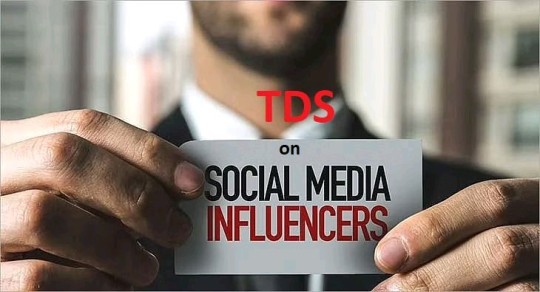
#influencer#content creator#digital marketing#influencer marketing#social media marketing#creators#influencers#content marketing
1 note
·
View note